🧠HTML vs WordPress vs Tilda – what is the best choice for a business website?
HTML, WordPress, Tilda, comparison
When a company decides to invest in its online presence, one of the first questions that arises is: on which platform should the website be built? The answer is not so obvious, and it depends on many factors — budget, goals, timeline, customization needs, internal resources. The most common options usually considered are three: a pure HTML site, a site based on WordPress, or one built through a visual builder like Tilda. Each of these solutions has advantages and limitations, and understanding the differences can be the key between a website that simply “exists” and one that actively works for the business.
Let’s start with the most “traditional” solution: HTML. Creating a site in pure HTML, CSS, and JavaScript means building each page from scratch without relying on CMS platforms. It’s a choice that offers maximum freedom: any type of layout can be created, custom libraries can be integrated, performance can be highly optimized, and you completely avoid third-party dependencies. For companies that want a highly customized, lean, ultra-fast solution with specific technical requirements (such as tailored interactive systems or hybrid applications), HTML is often the most solid base. However, this freedom comes at a cost: every update requires technical skills. The client cannot easily edit text or images without a developer’s help, making daily management more expensive or less autonomous.
WordPress, on the other hand, represents the perfect compromise between flexibility and usability. It’s the most widely used CMS (Content Management System) in the world, powering over 40% of websites, and it’s appreciated for its ability to create virtually any type of site: blogs, company showcases, e-commerce, landing pages, and portals. The strength of WordPress lies in its modular structure: thousands of plugins, themes, and visual builders (like Elementor or Gutenberg) allow you to build professional websites even without writing a single line of code. But to get the most out of WordPress, it’s advisable to rely on professionals who can configure it securely, quickly, and in an SEO-friendly way. The platform is extremely powerful but requires ongoing maintenance: updates, backups, malware protection, performance optimization. For companies that want a dynamic site, easy to update independently, with room to grow and evolve, WordPress is often the most balanced choice.
Tilda, finally, is the most “quick” and visual solution, designed for those who need an elegant but not too complex online presence. It’s a drag-and-drop website builder that allows you to create professional pages quickly, even without any technical knowledge. It’s perfect for landing pages, portfolios, one-page sites, or short-term projects. Tilda’s main advantage is speed: within 1–2 days, a functional site can be published. The templates are modern, responsive, and visually well-crafted. However, when the needs become more advanced — such as CRM integrations, advanced SEO, extreme loading speed, or logic customization — Tilda shows its limits. It’s a closed platform: you cannot deeply intervene in the code, and you're bound to its native functions. It’s ideal for simple projects, but not meant to scale or be used for highly complex developments.
In summary, there is no “best” solution in absolute terms — only the one that best suits you, your business, and your goals. If you want a small but refined showcase site that tells your story in an elegant and professional way, Tilda can be a great start. If your goal is to manage content, expand online visibility, and create complex, customizable structures, WordPress is a solid and versatile base. If you’re looking for something unique, minimal, optimized down to the last detail, and are willing to invest in updates managed by developers, pure HTML is the most professional route.
Studio Web offers personalized consulting to help you choose the right solution, without bias and with maximum transparency. Because every business has its own voice — and the website should be the tool that amplifies it, not one that limits it.


Studio Web - Synergy Grafitech © 2025 Copyright | Privacy Policy
